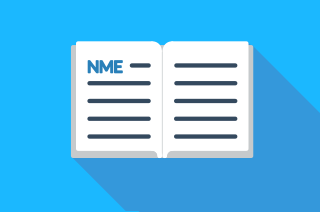PRESS RELEASE
-Brussels, 13 March 2024-
With the adoption of the European Media Freedom Act today in the European Parliament, the EU is sending a strong message to protect the freedom of the press. The EMFA equips media companies with clear and tangible rights, including:
The protection of journalistic sources and confidential communications, free from spyware. Derogations on the ground of national security must be very strictly limited.
The right to operate free from political interference in the single market. Unjustified and arbitrary suspensions of press cards, tv licenses or newsroom closures must simply end.
Unhindered visibility of professional media content on very large distribution platforms, putting an end for instance to abusive or frivolous take-downs by social networks like X(Twitter);
The end of platforms’ opaque audience measurement systems which have a direct impact on publishers’ readership, content performance and advertising revenues;
The transparent and non-discriminatory allocation of state advertising, without precluding the necessary funding of local and regional media.
Wout van Wijk, Executive Director of News Media Europe, said: “The EMFA is first and foremost a protection instrument, not a regulatory tool, for European newsrooms. We will make sure that our rights are effectively upheld”.
Going forward, Member States need to enforce the regulation, directly applicable in national legal systems. We insist on three main points:
The press must stay self-regulated, at all costs. Self-regulation and independent editorial control guarantee that journalists can report freely and hold figures of power to account, without the fear of retaliation nor censorship. Democracy cannot properly function otherwise. This also means that regulations cannot interfere with the day-to-day operation of newsrooms (Article 6.2).Citizens must have unhindered access to professional journalism online. The EMFA must serve as an effective communication instrument between large platforms and the media to fix any disagreement about content visibility (Article 17). Press publishers expect clear procedural safeguards, not a box-ticking exercise. Also, compliance with internet regulation, and in particular the Digital Services Act, cannot be used as an excuse to over-remove content.There is no editorial independence without financial independence. From the perspective of private media, the interpretation of concentration rules must be flexible enough to allow a media group to acquire a title for economic viability (Article 21). The involvement of the Board at European level must not slow down much needed transactions (Article 22).
News Media Europe will continue to actively engage with EU Institutions and the new Board of media service providers to ensure that the EMFA works as a protection instrument for the press in Europe.
Contact: Aurore Raoux (EU Policy Manager)
Press releases , May 22, 2025
Deirdre Veldon of The Irish Times Appointed President of News Media Europe
News Media Europe appointed Deirdre Veldon, Managing Director of The Irish Times Group, as its new President at its General…
Press releases , May 9, 2025
Valuing Freedom, Unity and Peace on Europe Day 2025 as we Celebrate the 75th Anniversary of the Schuman Declaration
Today, on Europe Day, we celebrate the founding of the European Union and the values that define it—freedom, unity, and…
Press releases , March 28, 2025
Joint statement by a coalition of authors, performers and other rightsholders active across the EU’s cultural and creative sectors regarding the third draft of the EU AI Act’s GPAI Code of Practice
The third draft of the GPAI Code of Practice undermines the objectives of the AI Act, contravenes EU law and…
Press releases , March 27, 2025
Statement of concern regarding draft AI code of practice
European news publishers are deeply concerned about the third draft code of practice published last week by the European Commission. The draft…
Press releases , March 24, 2025
European press publishers: Google is not entitled to suppress nor set the value of journalistic information “Made in Europe”
European press publishers firmly reject Google’s alleged findings regarding the relevance and value for the company of European journalistic content in…
Press releases , November 14, 2024
Statement on Google’s unilateral test on European news content
News Media Europe has taken note of Google’s blog post “Providing more data about news results in the EU” (link)….
Press releases , October 17, 2024
News Media Europe urges Dutch government to keep press products accessible to all
The European association of news publishers calls for the retention of the reduced VAT rate of 9% on daily newspapers,…
Press releases , March 13, 2024
EU AI Act: Joint statement from European creators and rightsholders
-Brussels, 13 March 2024- We represent a broad coalition of organisations in Europe’s creative and cultural sectors, including music, visual,…
Press releases , December 15, 2023
Press publishers greet improvements to Media Freedom Act
PRESS RELEASE -Brussels, 15 December 2023- Today EU Institutions finalised a political agreement on the European Media Freedom Act. News…
Press releases , October 3, 2023
Final stretch of the Media Freedom Act: How to get it right?
PRESS RELEASE -Brussels, 3 October 2023- The European Parliament adopted today its position on the European Media Freedom Act including…
Press releases , September 7, 2023
Supporting journalism in Europe must be taken seriously – Publishers’ call to Media Freedom Act negotiators
Brussels, 7 September 2023 Today the Culture Committee leading parliamentary work on the European Media Freedom Act (EMFA) adopted its…
Press releases , June 21, 2023
EU must try harder for a free and competitive European press
PRESS RELEASE -Brussels, 21 June 2023- European news publishers regard the today’s general approach on the European Media Freedom Act…
Press releases , June 14, 2023
Long-awaited EU probe against Google advertising backed by European publishers
The European Commission filed a formal complaint against Google’s advertising business for breaching competition rules against abuses of market dominance. Wout van Wijk,…
Press releases , May 25, 2023
European Parliament protects news media against intimidating and silencing lawsuits that kill free speech
This week, the Civil Liberties (LIBE) and Culture and Education (CULT) Committees in the European Parliament adopted two important opinions…
Press releases , September 16, 2022
“Media Freedom Act must be amended to live up to its original intention”, say European publishers
Brussels, 16 September 2022 The EU is proposing a “Media Freedom Act” to protect the independence of media in the…
Press releases , July 5, 2022
Guide for Journalists on Documenting International Crimes
PRESS RELEASE -Brussels, 5 July 2022- The Centre for Law and Democracy and News Media Europe are thrilled to launch…
Press releases , June 16, 2022
Big tech’s self-imposed rules on fighting fake news treat symptoms, not causes
PRESS RELEASE -Brussels, 16 June 2022- European news publishers fear that the platform’s proposals to tackle online fake news, the…
Press releases , April 27, 2022
New EU legislation hits back at abuse lawsuits and empowers the free press
PRESS RELEASE -Brussels, 27 April 2022- Today, European press publishers applaud legislation tackling abusive lawsuits against public participation, also known as “SLAPPs”….
Press releases , April 23, 2022
New European internet rules: putting an end to the wild wild west?
PRESS RELEASE -Brussels, 23 April 2022- The adoption of new European internet rules today will lead to a more trust…
Press releases , March 24, 2022
European media warn big tech to comply with EU digital market rules or face legal action
PRESS RELEASE -Brussels, 24 March 2022- Media markets are about to witness a revolution in their difficult relationship with big…
Press releases , February 25, 2022
European press publishers call for safety of journalists following Russian invasion of Ukraine
STATEMENT -Brussels, 25 February 2022- In a conflict as serious as the one unfolding in Ukraine, free and unhampered reporting…
Press releases , January 20, 2022
The European Parliament fails to deliver a strong Digital Services Act
PRESS RELEASE -Brussels, 20 January 2022- Today, the European Parliament plenary adopted its position on the Digital Services Act (DSA). The text…
Press releases , January 18, 2022
The Digital Services Act must safeguard freedom of expression online
PRESS RELEASE -Brussels, 18 January 2022- Imagine a world where platforms can censor negative news about themselves, where they can…
Press releases , December 16, 2021
European Parliament’s DMA vote paves the way for a future-forward media sector
PRESS RELEASE -Brussels, 15 December 2021- A broad coalition from the European media sector, including public and commercial broadcasters, radios…
Press releases , December 14, 2021
European press urges European Parliament to protect editorial content integrity and online advertising revenues
PRESS RELEASE -Brussels, 14 December 2021- Today, the Internal Market and Consumer Protection (IMCO) committee adopted its report on the…
Press releases , December 7, 2021
News publishers hail new VAT rules that allow for zero-rating of journalistic publications
PRESS RELEASE -Brussels, 7 December 2021- Today, EU Finance Ministers (ECOFIN) adopted important amendments to the EU VAT Directive which…
Press releases , November 25, 2021
News publishers call on policy makers to focus on bringing meaningful transparency to citizens in relation to political advertising
PRESS RELEASE –Brussels, 25 November 2021- News Media Europe takes note of today’s proposal for a Regulation on the transparency…
Press releases , November 25, 2021
European Media call on co-legislators to protect editorial content integrity and free media in the Digital Services Act
PRESS RELEASE -Brussels, 25 November 2021- Today, EU Ministers adopted the Council’s General Approach on the Digital Services Act (DSA)….
Press releases , November 25, 2021
Media sector calls for remaining loopholes in the Digital Markets Act to be addressed during trialogue
PRESS RELEASE -Brussels, 25 November 2021- The European media sector, through the voice of public and commercial broadcasters, radios and…
Press releases , November 19, 2021
Victoria Svanberg assumes Presidency of News Media Europe
PRESS RELEASE -Brussels, 19 November 2021- Victoria Svanberg, chairman of Swedish publishing group NWT Media, is the new President of…
Press releases , September 16, 2021
European press publishers call on European Commission to stay strong on implementation of Recommendations
PRESS RELEASE -Brussels, 16 September 2021- Today, the European Commission unveiled its Recommendation for the Safety of Journalists in Europe….
Press releases , July 27, 2021
European news media asks Member States to transpose smart copyright rules
Brussels, 27 July 2021 On 26 July the European Commission started infringement proceedings against 23 Member States for failure to transpose the…
Press releases , June 22, 2021
European press publishers encouraged by EU antitrust probe into Google ad-tech
PRESS RELEASE -Brussels, 22 June 2021- The European Commission opened today an antitrust investigation to assess whether Google is abusing its dominant…
Press releases , June 7, 2021
European publishers slam delays in implementation of Copyright Directive
PRESS RELEASE -Brussels, 7 June 2021- European press publishers association News Media Europe slams the late transposition of the European…
Press releases , May 26, 2021
European press publishers insist on press freedom safeguards in the reviewed Disinformation Code of Practice
PRESS RELEASE -Brussels, 26 May 2021- In response to the European Commission’s Guidelines reviewing the Code of Practice on Disinformation…
Press releases , May 19, 2021
Czech publishers association Asociace Online Vydavatelu (Association of online publishers) joins News Media Europe
PRESS RELEASE -Prague / Brussels, 19 May 2021- Czech publishers association Asociace Online Vydavatelu (Association of online publishers) joins News…
Press releases , April 30, 2021
European Commission sends Statement of Objections to Apple following Spotify complaint
PRESS RELEASE -Brussels, 30 April 2021- News Media Europe applauds the European Commission’s decision to send Apple a Statement of Objections,…
Press releases , February 22, 2021
Europe’s press publishers & Microsoft call for Australian-style arbitration mechanism in Europe to ensure tech gatekeepers remunerate press publishers fairly for use of content
PRESS RELEASE -22 February 2021- Europe’s press publishers and Microsoft today agreed to work together on a solution to ensure…
Press releases , February 11, 2021
News Media Europe reacts to Member States’ common approach on the ePrivacy Regulation
PRESS RELEASE –Brussels, 11 February 2021– EU Member States agreed on a common approach to the ePrivacy Regulation proposal which…
Press releases , December 15, 2020
News publishers: “DSA and DMA are a missed opportunity to rebalance online ecosystem”
PRESS RELEASE –Brussels, 15 December 2020– News publishers speak of a missed opportunity following today’s announcement of the Digital Services…
Press releases , December 3, 2020
News publishers optimistic about European Commission’s plans to defend media freedom and sustainability
PRESS RELEASE -Brussels, 3 December 2020- Today, the European Commission released two important and complementary strategies for the news industry:the…
Press releases , November 26, 2020
News Media Europe reaction to European Parliament’s resolution on strengthening media freedom
PRESS RELEASE -Brussels, 25 November 2020- A week before the publication of the European Democracy Action Plan, the European Parliament’s…
Press releases , November 19, 2020
Press publishers welcome the EU Council Conclusions on safeguarding a free and pluralistic media system and warn against trust indicators and the promotion of public communications on mega platforms
PRESS RELEASE -Brussels, 19 November 2020- European newspaper and magazine publishers across Europe welcome the EU Council Conclusions on safeguarding…
Press releases , October 27, 2020
Joanne McGreevy appointed Vice President at News Media Europe
PRESS RELEASE -Brussels, 27 October 2020- Joanne McGreevy, Marketplace Publisher at Reach Ireland, joins Brussels-based trade association News Media Europe…
Press releases , October 21, 2020
European Parliament votes on future of internet; news publishers concerned about the future of professional journalism
PRESS RELEASE -Brussels, 21 October 2020- The European Parliament adopted yesterday evening three own-initiative reports on the Digital Services Act…
Press releases , October 8, 2020
European news media celebrate decision by the Paris Court of Appeal on the French publishers’ right
PRESS RELEASE -Brussels, 8 October 2020- News Media Europe welcomes today’s decision of the Paris Court of Appeal, confirming the obligation for…
Press releases , October 1, 2020
Google News Showcase launched today is no substitute for the EU publishers right
PRESS RELEASE -Brussels, 1 October 2020- Google announced today the launch of a $1 billion investment to support news publishers…
Press releases , September 24, 2020
News Media Europe supports the Coalition for App Fairness
PRESS RELEASE -Brussels, 24 September 2020- News Media Europe supports the Coalition for App Fairness (https://appfairness.org) that was launched today…
Press releases , June 26, 2020
News Media Europe reaction to Google’s licensing programme for news
PRESS RELEASE -Brussels, 26 June 2020- Google announced yesterday that it will launch later this year “a licensing programme to support the news…
Press releases , June 16, 2020
European news media support European Commission decision to open a formal probe following Spotify’s complaint against Apple
PRESS RELEASE -Brussels, 16 June 2020- News Media Europe applauds the decision of the European Commission to open a formal…










